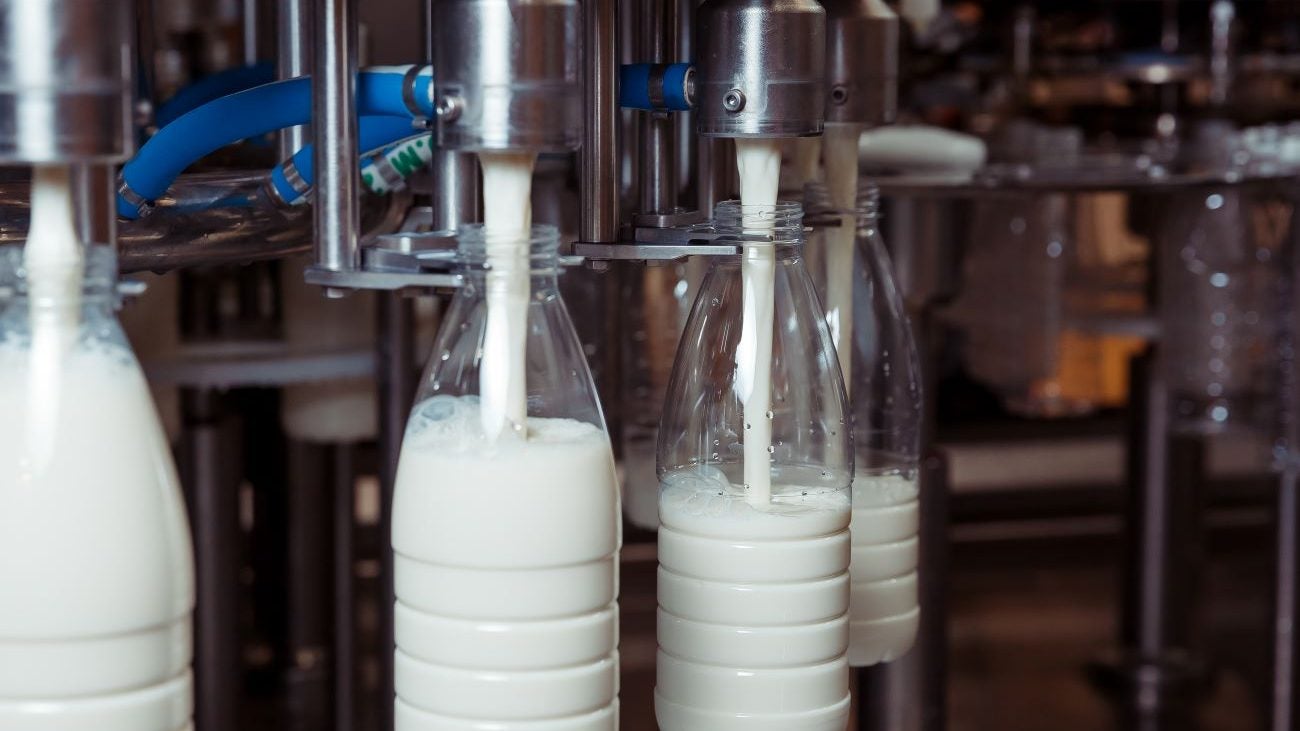
There are signs UK food and drink manufacturers are becoming more confident about their prospects, an industry survey has suggested.
According to the latest State of the Industry Report by UK trade body The Food and Drink Federation (FDF), the “net confidence score” among respondents hit 6% in the third quarter, entering positive territory for the first time since the second quarter of 2021.

Discover B2B Marketing That Performs
Combine business intelligence and editorial excellence to reach engaged professionals across 36 leading media platforms.
The FDF said the “outlook confidence score” for the fourth quarter of the year is 16%, suggesting “businesses are more optimistic and are largely expecting stability”. More than half of respondents said they thought conditions would “remain the same” in this quarter.
The federation said 41% of businesses wanted to boost their capex over the next 12 months, matching the 41% that said they would maintain levels of spending. Some 18% said they expected it to fall.
Investment in food and drink production has significantly decreased over the past two years in the UK.
Data from the Office for National Statistics shows food and drink business investment decreased by 36% in the first half of 2023 versus the same period in 2019. It was also 16% lower than numbers recorded in the first half of 2016.

US Tariffs are shifting - will you react or anticipate?
Don’t let policy changes catch you off guard. Stay proactive with real-time data and expert analysis.
By GlobalDataMeanwhile, investment in other business sectors in the UK rose 6% in the first half of this year compared to the same period in 2019, and by 7% compared to levels at that time in 2016.
Over 80% of manufacturers also reported that they were honing in on innovation to remain competitive in a difficult market.
This comes as UK consumer behaviour continues to shift, with 73% of businesses noting they had seen growing consumer demand for cheaper products due to the increasing cost of living.
In November, the national Competition and Markets Authority criticised the grocery sector for contributing to food and drink inflation, claiming that 75% of manufacturers in certain product areas had increased prices faster than costs.
While food manufacturing growth was up by 1.2% in the third quarter of 2023 year on year, the FDF’s findings revealed specific sector areas have taken a hit.
Dairy saw the largest annual growth decline, down by -4.5%, followed by fish, fruit and vegetables at -4.3%, grain mill and starches at -1.1% and meat at 0.4%.
Non-alcoholic drink production growth was down -4.1% compared to the third quarter in 2022, and decreased -5.8% compared to the second quarter of this year.
The FDF said it expects production costs to increase by 3.9% and prices by 2.7% in the next year.
The factors that could push up costs in the near future include the mixed impact of weather, the lower use of fertiliser, inflated energy prices, the ongoing conflicts in Ukraine and the Middle East and upcoming regulations.
Nearly 70% of businesses said they were apprehensive about incoming packaging regulations, while 65% said they had concerns about carbon footprint and net zero.
Some 39% said that they were concerned about HFSS regulations and the Windsor Framework.
In light of these industry concerns, the FDF has demanded an “appropriate and efficient regulation to improve the business environment and to avoid driving up unnecessary costs”.
Commenting on the findings, Balwinder Dhoot, director of sustainability and growth at the FDF, said: “With grocery volumes declining, manufacturers prioritising new product innovation is a way to maintain competitiveness and drive growth. The rise in confidence for the food and drink industry is a sign that market conditions have stabilised. However, there are still huge challenges that face the sector.”
Dhoot called on the UK government to support policies that will help to increase investment in the sector, saying it is essential “if we are to build a sustainable and resilient food supply chain which supports growth and is vital for a strong economy”.
He added: “We saw some positive signals in the Autumn Statement and welcomed the announcement on full expensing, but any benefits will be more than undone by planned regulation that will hit our sector in the coming year.”



